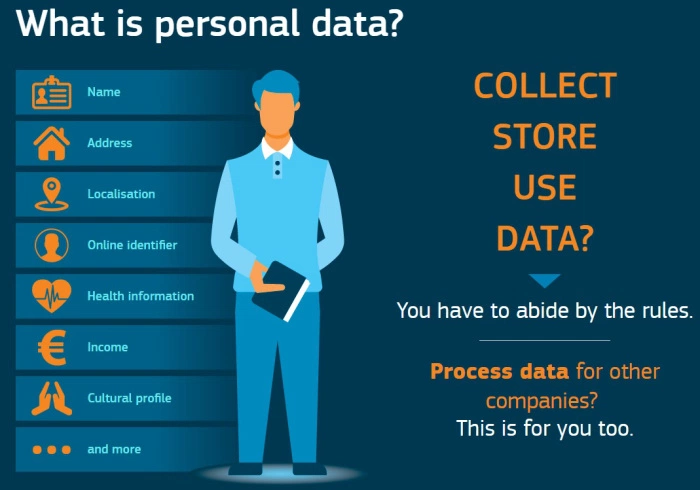Having trouble establishing who your customers are? Want to know how this can be solved? Do you feel GDPR is holding you back? If you’ve had to think about any of these questions then read on.
Gaining basic contact information about who you are selling to is important for the success of your business. It’s a legal requirement to gather facts correctly, but once you've got it, it helps your business become more successful. Accurate email addresses, for instance, enable you to directly influence the buyer, therefore pulling them toward your company and product. But the details must be gathered in the correct manner.
How you can collect data safely
The General Data Protection Regulation (GDPR) is a legal framework that sets guidelines for the collection and processing of personal information of individuals within the European Union (EU) . It comes into effect across the EU on May 25, 2018. Here is a quick recap of the key principles:
- Lawfulness, fairness and transparency
- Data can only be used for one purpose at a time
- Data minimisation
- Accuracy
- Storage limitations
- Integrity and confidentiality
GDPR isn't about making life difficult for businesses as it is in the best interest for us all. By following these principles you increase your company’s chance of success.
How GDPR can help your business
Since we have to work with this law, capitalize on its advantages to create an effective buyer persona. Concentrate on a few details that will give you the most insight into your customers.
By abiding by the laws you can create a clear and accurate customer profile, which can be important to your company because the information you gather makes it easier to distinguish why customers buy from you. Furthermore, the more information you have about your customers, the easier it is to spot opportunities to sell them new products.
Consider these key information sets to build a customer profile:
- Company contact details
- Key contacts
- Business structure
- Financial highlights
- Current suppliers
Once you have your information in place use it to help identify trends about key customers. Having processes makes it easier to look for those who make the largest orders or those accounts which are most profitable.
In most businesses, just a few customers are responsible for a lot of your orders. Profiling existing customers makes it easier to find new ones. You can look for similar prospects and sell to them in a similar way.
Another advantage of gathering facts, as long as it is done within the boundaries of the law, is knowing who to contact and how to contact them. This information is vital to gain access to potential leads for the sales team. It also helps you identify those decision makers and influencers in the business with the authority to do what you are asking of them.
Turn the law's processes to your advantage so your company will be able to use it to gain more customers. If you do your job thoroughly, you should reap the rewards.








